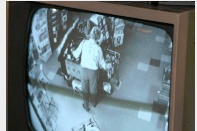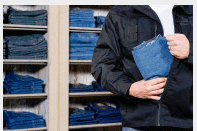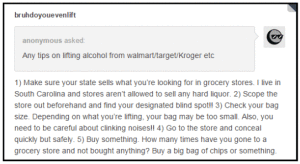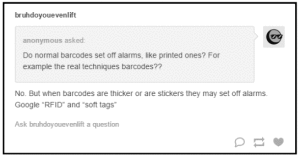 Many folks have go kits set up so that in the event of a storm, natural disaster or civil disturbance, they can grab their family and the Go Kit and be covered. Personal Go Kits tend to have copies of documents such as drivers licenses, birth certificates, passports, deeds…. But Go Kits can also include items to survive such as water, food, medicines, flashlights, a weapon…. These concepts used to be confined to those among us that are expecting a doom’s day interruption or ending to our society.
Many folks have go kits set up so that in the event of a storm, natural disaster or civil disturbance, they can grab their family and the Go Kit and be covered. Personal Go Kits tend to have copies of documents such as drivers licenses, birth certificates, passports, deeds…. But Go Kits can also include items to survive such as water, food, medicines, flashlights, a weapon…. These concepts used to be confined to those among us that are expecting a doom’s day interruption or ending to our society.
However, with the complexity of our society come other issues. How would you easily prove that a house belongs to you, if the area was damaged beyond recognition? Say a hurricane, flood, wild fire or earthquake? What happens if the official records are also lost? Are you going to depend on others to put your life back together again?
The same applies to your business. How will you prove to your insurance company that your inventory is valued at $XXXX if your records all disappear in a fire? The same applies to payroll records and the like. You need to have a BUSINESS Go Kit!
Thankfully this is simpler than you may think. Consider keeping your data files in a cloud environment that has multiple backups on servers that are located in multiple locations around the US. If they are on one server located in New Orleans or Miami, I would re-think that strategy. We use Google’s cloud. It costs us $5/month per employee and the redundant backups are on five separate servers in five different geographical locations in the United States.
Scan in important documents such as business licenses, insurance documents, titles, vendor documents, etc. Put them in your cloud. That way you have access wherever you are. It might be a good idea to put photos of your business, inventory, equipment and more on there, every six months or annually. Have your backups of accounting data such as Quick Books reside their also. All of this plus payroll records, taxes and more could be rebuilt but why would you want to take the time to do this when it is simply a matter of changing your habits?
Oh but “it will never happen to me” or “I will get to that tomorrow” are favorite phrases we all like to use to put something off that we know should be done. It will happen to you and it will happen “tomorrow”. An earthquake may never threaten your business but then again a data loss, PC crash probably will.
Unless you are wealthy beyond belief, then like the rest of us that are not, we depend on our business to provide for our families and life style. We will need to restore that cash flow in the quickest manner possible and with the least amount of effort to get there. Your business Go Kit will help make that happen.
It is also a good idea to keep a few extra cases of water, blankets, candles and canned soup on hand. I may be miserable but being warm, having a full stomach and a little light to read by will make it a little less miserable.








 eir knowledge to others who may be new to the game. Much like a tenured LP manager taking a green agent under their wings.
eir knowledge to others who may be new to the game. Much like a tenured LP manager taking a green agent under their wings.


